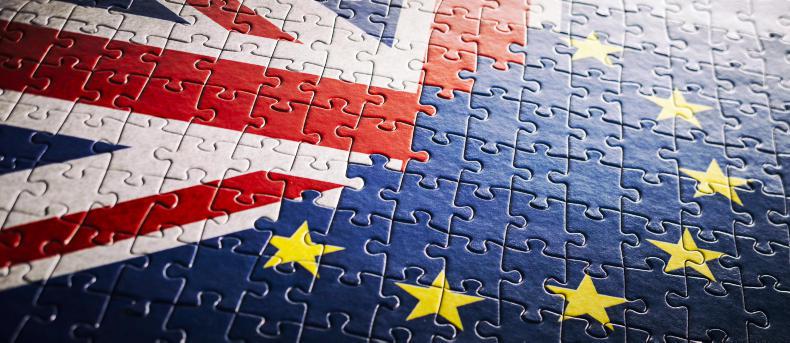As the Brexit negotiations enter the crunch phase, the British-Irish Chamber of Commerce has tabled proposals that are well worthy of consideration.
Describing it as a customs arrangement, it would require the UK to align tariffs and standards with the EU or basically continue the present arrangement.
Strictly speaking this would put the UK outside the customs union but in practice would mean no change so business could continue as usual.
The Chamber cites the partial customs agreement made with Turkey in 1995 as a precedent for such an arrangement.
The vision is that this could be a much more complete arrangement, covering all products.
The paper also suggests that the UK would avail of any new free-trade agreements the EU entered and could have the right to be consulted but have no veto in their negotiation.
In practical terms, while the UK would be assuming control of its own immigration policy, it will still need high levels of immigration to service the food and catering sectors
One of the big issues for the UK is removal of the European Court of Justice jurisdiction.
In its suggestion, the Chamber proposes that a disputes resolution mechanism be established. This is common practice where free-trade agreements are negotiated.
The paper also suggests that the UK could de-facto leave the single market and have its own independent immigration policy.
Again, in practical terms, while the UK would be assuming control of its own immigration policy, it will still need high levels of immigration to service the food and catering sectors.
It is easy to visualise people wanting to move to the UK having to apply but this can be a process as simple as getting an online holiday visa as is required for many countries outside the EU.
So the UK can have complete control of immigration and withdraw from the jurisdiction of the European court.

David Davis (left) and Michel Barnier (right) after the last formal round of Brexit negotiations in Brussels.
The customs arrangement does involve a compromise in that it is aligned with the EU and limits the scope of making alternative arrangements with third countries.
However, careful analysis should reveal that the UK would achieve better trade deals as part of the larger EU block than it could achieve separately.
Preliminary enquiries with the US made it clear that they would have to accept US standards on food production while India would be negotiating visa access to the UK as part of any separate deal.
Read more
Brexit looms large over NI sheepmeat market
'Chaotic' Brexit hangs over Ireland
As the Brexit negotiations enter the crunch phase, the British-Irish Chamber of Commerce has tabled proposals that are well worthy of consideration.
Describing it as a customs arrangement, it would require the UK to align tariffs and standards with the EU or basically continue the present arrangement.
Strictly speaking this would put the UK outside the customs union but in practice would mean no change so business could continue as usual.
The Chamber cites the partial customs agreement made with Turkey in 1995 as a precedent for such an arrangement.
The vision is that this could be a much more complete arrangement, covering all products.
The paper also suggests that the UK would avail of any new free-trade agreements the EU entered and could have the right to be consulted but have no veto in their negotiation.
In practical terms, while the UK would be assuming control of its own immigration policy, it will still need high levels of immigration to service the food and catering sectors
One of the big issues for the UK is removal of the European Court of Justice jurisdiction.
In its suggestion, the Chamber proposes that a disputes resolution mechanism be established. This is common practice where free-trade agreements are negotiated.
The paper also suggests that the UK could de-facto leave the single market and have its own independent immigration policy.
Again, in practical terms, while the UK would be assuming control of its own immigration policy, it will still need high levels of immigration to service the food and catering sectors.
It is easy to visualise people wanting to move to the UK having to apply but this can be a process as simple as getting an online holiday visa as is required for many countries outside the EU.
So the UK can have complete control of immigration and withdraw from the jurisdiction of the European court.

David Davis (left) and Michel Barnier (right) after the last formal round of Brexit negotiations in Brussels.
The customs arrangement does involve a compromise in that it is aligned with the EU and limits the scope of making alternative arrangements with third countries.
However, careful analysis should reveal that the UK would achieve better trade deals as part of the larger EU block than it could achieve separately.
Preliminary enquiries with the US made it clear that they would have to accept US standards on food production while India would be negotiating visa access to the UK as part of any separate deal.
Read more
Brexit looms large over NI sheepmeat market
'Chaotic' Brexit hangs over Ireland







 This is a subscriber-only article
This is a subscriber-only article










SHARING OPTIONS: